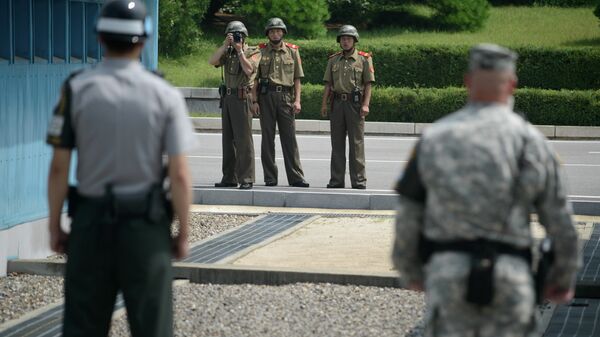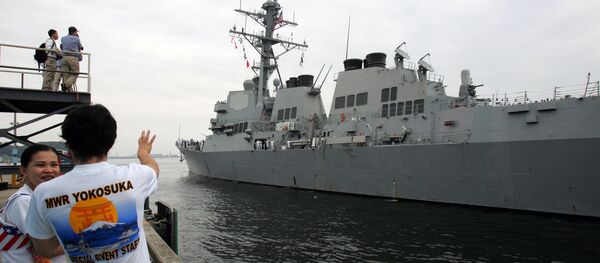He mentioned a number of political and psychological factors holding up the much-overdue process of mending ties between the two countries.
“The ‘Iron Curtain’ is working both ways. Just like the average US analyst has a distorted picture of North Korea, exactly the same is true about the North Koreans’ view of the United States,” Asmolov told Sputnik Korea.
He mentioned the lack of any serious studies of US domestic policy, history and culture in North Korea, which often results in reactive, rather than proactive, decisions taken by Pyongyang regarding the United States and also South Korea, which it sees as a US puppet.
North Korea says it has nuclear warheads and means of their delivery and this creates a complex political dilemma for Washington.
“Any attempt to really start talking to Pyongyang is psychologically unacceptable for the American elite and will cause very serious reputational damage for [those who venture such an attempt],” Asmolov noted.
“The Americans tend to think that as long as the sanctions are in place, North Korea will continue to suffer and will eventually fall apart. In reality, the North dug in its heels and said, ‘what the hell, we are ready to suffer more, but we’ll never give in!”
Asmolov said that sooner or later Pyongyang will have missiles capable of reaching the US mainland and, aware of this prospect, the Americans might want to launch a preemptive strike.
However, the Americans will not settle for anything less than a complete victory.
“Even if North Korea is bombed into the Stone Age there is still a possibility that one or two of their missiles will get through and go off on US territory, this will no longer be seen as a clean win, both from the standpoint of political, economic and reputational consequences,” Asmolov said.
“The South Korean intelligence agencies suffer from a very serious “competence crisis” with their analysts having turned into propagandists who seem to believe what they are saying,” Asmolov noted.
“They keep saying that the sanctions are working, that North Koreans will starve to death tomorrow and will take to the streets the day after tomorrow. Personally I saw no real effects of these sanctions, at least in Pyongyang,” said Asmolov, who recently traveled to North Korea.
Despite the economic problems in the North, above all in the energy sector, the situation with food supplies is already improving and per capita income keeps going up, that’s why Asmolov expects no food riots happening there any time soon.
Whether this trend is going to prevail under a Clinton or Trump presidency remains to be seen though.







